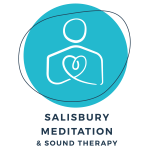April is Stress Awareness Month, a time to shine a light on the significant impact stress has on our lives and explore ways to manage it effectively. Stress, while a natural human response, can become chronic if left unchecked, leading to a decline in both physical and mental well-being. This year’s theme, #LittlebyLittle, emphasises that even small, consistent efforts towards stress management can make a big difference.

Why We Need to Check In With Ourselves: Early Detection is Key
Imagine stress as a pot of water slowly coming to a boil. Initially, you might not even notice the heat rising. But if left unattended, that simmer can morph into a full-blown boil-over. That’s why checking in with yourself regularly is crucial. By acknowledging subtle signs of stress early on, you can take action before things escalate. Pay attention to:
- Your Body: Headaches, muscle tension, fatigue, and changes in appetite or sleep can all be indicators of stress.
- Your Emotions: Feeling irritable, anxious, or overwhelmed are common stress responses.
- Your Thoughts: Do you find yourself constantly worrying or struggling to concentrate?
By tuning into these signals, you empower yourself to manage stress before it gets out of hand.
Understanding your personal
stress response
Stress manifests differently for everyone. What might send your co-worker into a frenzy might barely faze you. The key is to understand your own unique stress triggers. Is it a looming deadline? Public speaking? Traffic jams? Identifying your triggers allows you to develop personalised coping mechanisms.

Managing Stress: Broad and Targeted Approaches
Building a strong foundation for well-being is essential for managing stress. This includes:
- Prioritising Sleep: Aim for 7-8 hours of quality sleep each night.
- Nourishing Your Body: Eat a balanced diet rich in fruits, vegetables, and whole grains.
- Regular Exercise: Physical activity is a powerful stress reliever. Find an activity you enjoy, whether it’s a brisk walk, yoga, or dancing in your living room.
- Learn to Say No: Setting boundaries allows you to focus on what truly matters and avoid taking on too much.
Beyond the Basics: Little Ways to De-Stress
The #LittlebyLittle approach encourages incorporating small stress-busting techniques into your daily routine. Here are a few ideas:
- Spend Time in Nature: Immerse yourself in the calming sights and sounds of nature. Take a walk in the park, go for a hike, or simply sit outside and breathe the fresh air.
- Connect with Loved Ones: Social support is a powerful stress buffer. Make time for friends and family who make you feel good.
- Practice Gratitude: Taking time to reflect on the things you’re grateful for can shift your perspective and boost your mood.
- Engage in Hobbies: Make time for activities you enjoy, whether it’s reading, painting, playing music, or spending time in your garden.
- Mindfulness Techniques: Short bursts of mindfulness exercises like deep breathing or mindful walking can bring you back to the present moment and ease tension.

Your Partner in Stress Management
At Salisbury Meditation & Sound Therapy, we offer powerful tools to help you manage stress in the long term and in the moment:
- Meditation: Meditation is a practice with proven benefits for stress reduction. By quieting the mind and focusing your attention, meditation helps lower stress hormones and promotes a sense of calm.
- Sound Therapy: Surrender to the deeply calming vibrations of our Tibetan singing bowls during a one our our sound baths. These resonate through your body, melting away stress and promoting deep relaxation.

The beauty of both meditation and sound therapy is that they can be practiced individually or combined for a holistic approach. Whether you’re looking for a long-term stress management strategy or need a quick de-stressing technique after a long day, Salisbury Meditation & Sound Therapy has something for you.
Take a #LittlebyLittle Step
Towards a Calmer You
Start your journey to a calmer and more stress-resistant you!
If you’d like to read into Stress Awareness Month more, here’s a link to the Stress.org website


Recent Comments